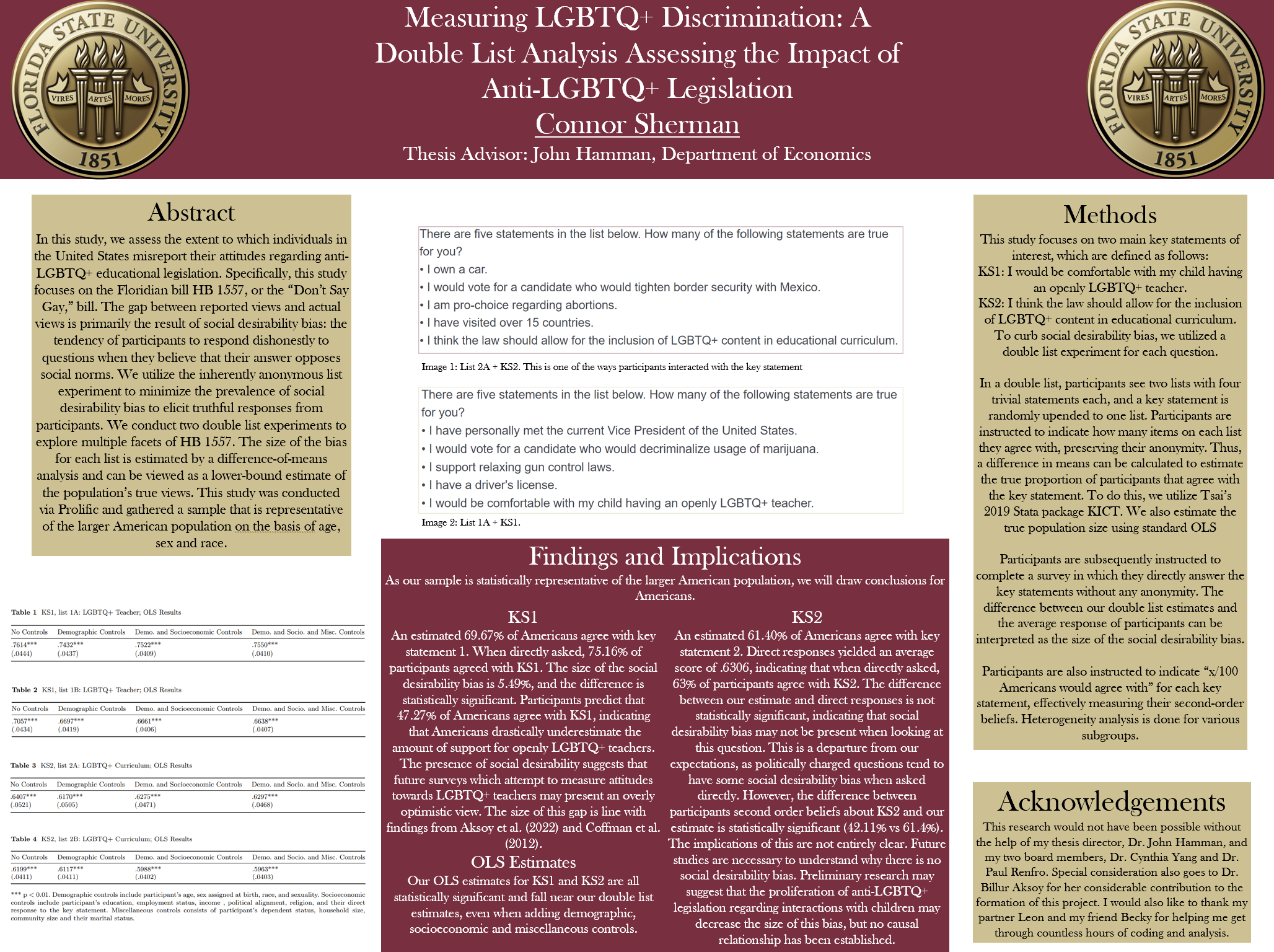Research Symposium
23rd annual Undergraduate Research Symposium, April 6, 2023
Connor Sherman Poster Session 3: 2:45 pm - 3:45 pm/ Poster #62
BIO
Hello! My name is Connor Sherman, and I am a senior graduating this Spring! During my time at FSU, I have been studying Applied Mathematics, Economics & History. I am also a Presidential Scholar, a UROP Leader, and a UROP Leader Mentor! My research engagements have ranged from measuring the impact of brain spillover from Universities on their local economy to the impact of the BLM movement on the productivity of academics. Currently, I am finishing up my final classes and working on my honors in the major thesis!
Measuring LGBTQ+ Discrimination: A Double List Analysis Assessing the Impact of Anti-LGBTQ+ Legislation
Authors: Connor Sherman, John HammanStudent Major: Applied and Computational Mathematics, Economics & History
Mentor: John Hamman
Mentor's Department: Economics Mentor's College: College of Social Science and Public Policy Co-Presenters:
Abstract
In this study, we assess the extent to which individuals in the United States misreport their attitudes regarding anti-LGBTQ+ educational legislation. Specifically, this study focuses on the Floridian bill HB 1557, or the “Don’t Say Gay,” bill, as it has been the center of media attention and has seemingly inspired similar pieces of legislation to be drafted throughout America. The gap between reported views and actual views is primarily the result of social desirability bias: the tendency of participants to respond dishonestly to questions when they believe that their answer opposes social norms. LGBTQ+ issues are controversial in American politics, so we utilize the inherently anonymous list experiment to minimize the prevalence of social desirability bias to elicit truthful responses from participants. We connect these findings to the literature about discrimination to assess the impact of anti-LGBTQ+ legislation on perceptions of LGBTQ+ people. We conduct two double list experiments to explore multiple facets of HB 1557. The size of the bias for each list will be estimated by a difference-of-means analysis and can be viewed as a lower-bound estimate of the population’s true views. This study was conducted via Prolific and gathered a sample that is representative of the larger American population on the basis of age, sex and race.
Keywords: LGBTQ+, Discrimination, HB 1557

